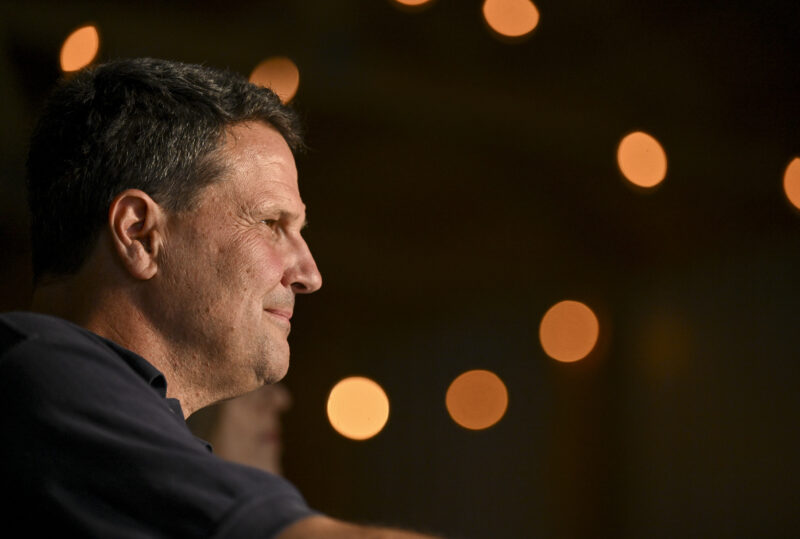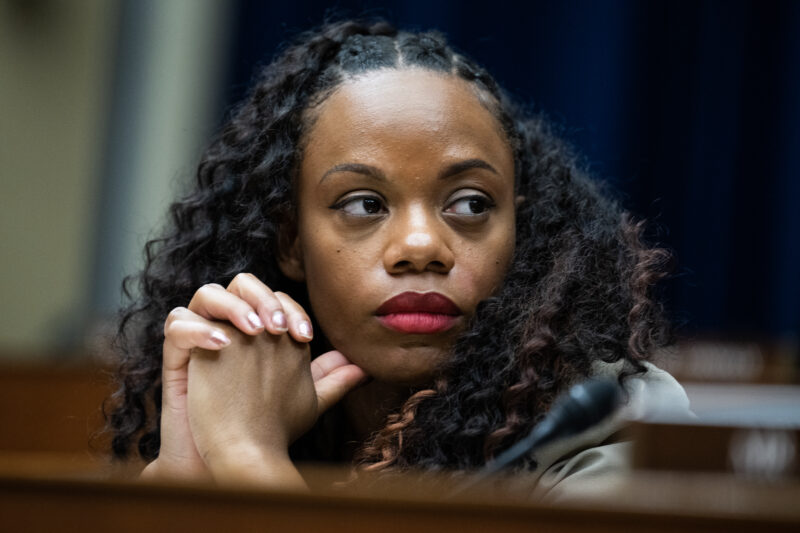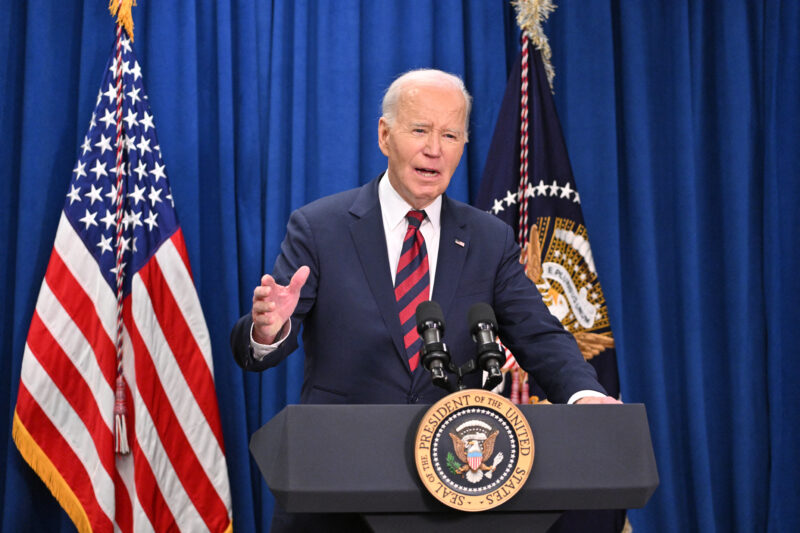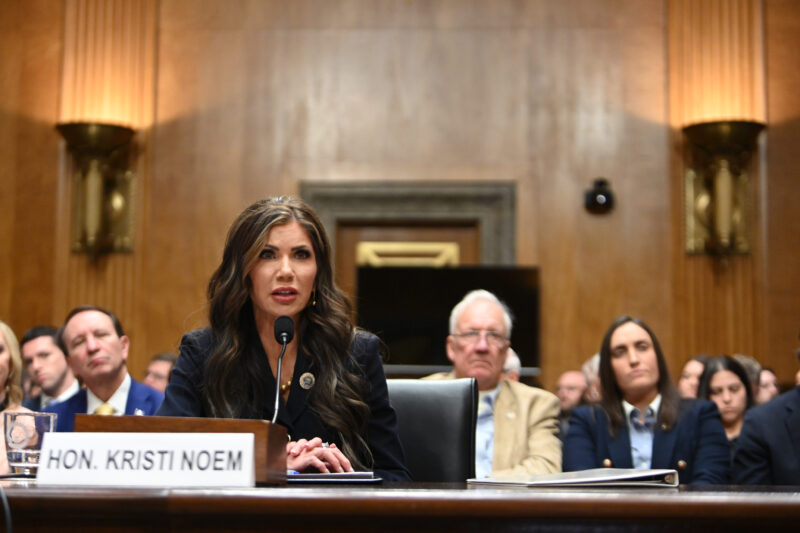New abortion rights group that’s safe space for Jews draws antisemitic backlash
Allison Tombros Korman launched the Red Tent Fund as a reaction to anti-Israel hate prevalent among abortion activists

Anna Moneymaker/Getty Images
An abortion rights advocate participates in a protest outside of the U.S. Supreme Court Building on June 24, 2024 in Washington, DC.
When Roe v. Wade was overturned two months into Allison Tombros Korman’s tenure leading the DC Abortion Fund, upending everything about abortion care in the U.S., the longtime reproductive health educator and activist thought things couldn’t get worse in her field. She was wrong.
Since the Oct. 7 Hamas attacks in Israel, Korman has watched as people she knew and worked with for years turned on her for supporting the Jewish state. The tumult and growing vitriol led her to resign from her dream job atop an organization that helps women in greater Washington access reproductive health care, a decision she documented in an essay in Tablet in April.
Her essay asked for abortion activists who are weighing in on the war in Gaza to also “recognize … our humanity.” But it did not spark a reckoning in the field. Instead, infighting over Israel remains widespread, as does the question of whether Jews supporting Israel should be welcome in the reproductive rights movement.
At a time when abortion access is under attack, Korman thinks the simmering antisemitism in her field isn’t just morally wrong, but a dangerous distraction from the work abortion funds actually do. That’s what led her to start the Red Tent Fund, an abortion fund steeped in Jewish values. Korman created the fund in May to allow Jews to be open about their Judaism while continuing to support a cause about which they care deeply.
“After Oct. 7, the abortion movement really made it incredibly difficult for Jews, a lot of Jews, to stay engaged in the abortion movement and feel like they had a place there,” Korman told Jewish Insider last week. “I created this so that they could continue to support the abortion funding movement in a way that didn’t make them feel alienated and pushed away.”
Abortion funds provide financial support to women who cannot afford abortions, where need has grown sharply after the Supreme Court overturned the fundamental right to an abortion in 2022. The Red Tent Fund — named for Anita Diamant’s classic novel of the same name, which centered on a biblical “Red Tent” where women congregated while menstruating or giving birth — will do much the same work as Korman’s previous employer, but its remit will extend nationally, not just in Washington. Neither its donors nor recipients need to be Jewish.
“I think lots of Jewish people felt like they no longer had a place to give money in the abortion movement after Oct. 7, and from my perspective, it’s not about whether you give the money to the Red Tent Fund or another abortion fund. It’s about making sure that people who need money for abortions can get that money,” Korman said.
The Red Tent Fund’s website explains that it seeks to avoid a “false choice” that “Jewish supporters of abortion funds” are now facing.
“After the tragic events of October 7th, many abortion organizations refused to acknowledge the atrocities and sexual violence against Jews and made Jews feel that they had to pick between their Jewish identity and their support for reproductive rights,” the website reads. “It was clear that there needed to be a space where people could support abortion without fear or ostracization because of other beliefs they held unrelated to abortion.”
The response Korman has received from within the Jewish community has been “phenomenal,” she said. So far, the fund has raised more than $30,000 from individuals and a Jewish family foundation. The fund plans to start distributing the money in the next two or three months. Despite the heated rhetoric among the community of abortion funds, Korman said the clinics and health centers that will receive the funding have not raised any qualms about working with an explicitly Jewish organization.
American Jews support access to abortion at a higher rate than the overall population. A poll released in May found that 81% of American Jews think abortion should be legal in all or most cases, compared to 64% of American adults overall.
“Jewish people have been prime leaders of a huge range of progressive causes, and it’s unacceptable for progressive leaders to completely disregard the antisemitism that is manifesting itself so bitterly in the spaces that they are leading,” said Guila Franklin Siegel, associate director of the Jewish Community Relations Council of Greater Washington, a founding partner of the Red Tent Fund. “I think Jewish progressives are too often succumbing to a false binary, which is that they either need to stay at the table and swallow who they are and what they believe in, or they need to leave the movement.”
JCRC is supporting the Red Tent Fund because “it is providing a way for Jewish women to be their entire selves at the table [and] not have to swallow who they are, and not give up on advocating for a cause that is so deeply important, and so commensurate with Jewish values and Jewish interests,” Siegel added.
Existing abortion funds, however, have not exactly rolled out the red carpet for Korman. The fund’s first Instagram post received a slew of hateful comments: “Feels like not a colleague but a COLONIZER,” one person wrote. “NO ZIONISM IN OUR REPRO MOVEMENT,” another wrote.
“It feels as though folks see this as kind of a zero-sum game, that if there is another abortion fund in the landscape, that it is going to be taking away from them,” Korman said. “That is certainly not my intention. My intention is to make sure that Jewish people can continue to engage in funding abortion, and to bring, frankly, new advocates and allies into this work.”
Chelsea Williams-Diggs, the interim executive director of the New York Abortion Access Fund, took to the social media platform X in June to go after the Red Tent Fund. “Is repro Twitter ready to discuss/drag the Zionist abortion fund that was just created?” Williams-Diggs asked her followers. “The absolute caucasity of this woman to create a new fund to cater to the needs of — not abortion seekers — but Zionist funders is mind blowing.” (Caucasity is a portmanteau of “caucasian” and “audacity.”) Williams-Diggs called the fund an “ego project” and asked, referring to Korman: “Who let this woman in our movement?”
The New York Abortion Access Fund and the DC Abortion Fund were two of more than 60 organizations, including several dozen abortion funds, that signed onto an open letter that declared, “You cannot be Pro-Choice without being Pro-Palestine.” According to the letter’s authors, “Zionism is a contradiction to Reproductive Justice.” The open letter — which linked to an article that declared that “Ending Zionism is a feminist issue” — was published in late October by ARC-Southeast, which helps women in the South access abortion care. It did not mention Hamas, or the Israeli hostages in Gaza. The DC Abortion Fund also called on its supporters to join Jewish Voice for Peace and IfNotNow, two far-left anti-Zionist organizations.
Sheila Katz, CEO of the National Council for Jewish Women, noted that antisemitism has been “percolating” in progressive spaces “for quite some time.”
“The year Roe v. Wade was overturned — we’re the leading organization focused on reproductive rights in the Jewish community, so you’d think that’s what I would have spent most of my time on that year. But if you look back two years ago, I spent close to 70% of my time navigating antisemitism and anti-Zionism in coalition spaces in the progressive community,” Katz explained. “There’s a trend happening across the country right now, not just in reproductive justice spaces, but particularly in progressive spaces, where antisemitism has become normalized.”
NCJW is a founding partner of the Red Tent Fund, alongside the JCRC and three major Washington-area synagogues: Adas Israel in Washington, Agudas Achim in Alexandria, Va., and Rodef Shalom in Falls Church, Va.
Siegel, of the JCRC, pointed to a Jewish teaching as her inspiration for continuing to support access to reproductive care, even when antisemitism within the field makes it difficult.
“We may not be able to complete the work,” Siegel quoted. “But we’re not free to desist from it.”




















































